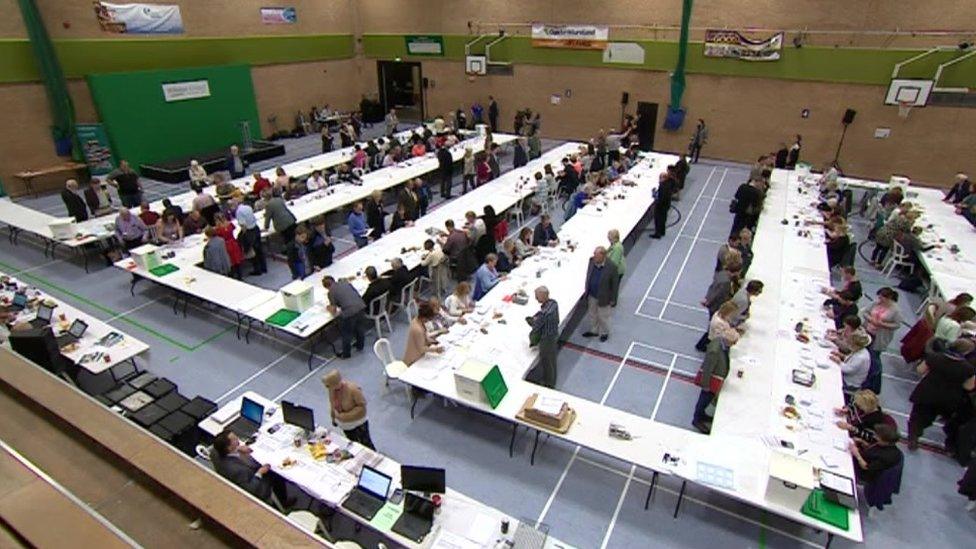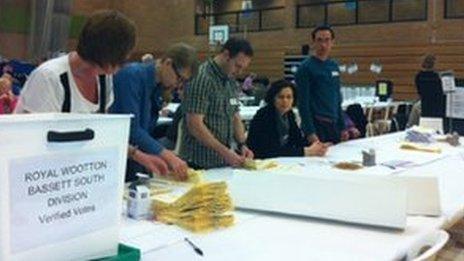Conservatives increase majority at Wiltshire Council
- Published

The Conservatives now hold more than two-thirds of seats at Wiltshire Council
The Conservative Party has increased its majority at Wiltshire Council, securing 68 out of 98 seats.
The Liberal Democrats lost two seats, as well as its group leader, while Labour lost one of its four seats and UKIP lost its only one.
Turnout for the county-wide vote was nearly 40%, the council confirmed.
Meanwhile, Labour won two of the three controversial new parish councils in Swindon.
Election 2017: Full results from across England
The Conservatives gained seven seats to hold more than two-thirds of the Wiltshire Council chamber, while the Lib Dems now hold 20, Independents seven and Labour three.
Lib Dem opposition leader Glenis Ansell lost her seat in Calne North to the Tories, but her party did have the satisfaction of winning Melksham Central from UKIP.
Gavin Grant, the Lib Dem councillor for Malmesbury, said it was "desperately sad" to lose Glenis Ansell, but added: "It's very noticeable in areas that voted Remain in last year's referendum we are performing extremely strongly and are well placed to challenge Brexiteer Conservatives."
Baroness Jane Scott, the current Conservative council leader, said the Tories had "started to make inroads into the market towns".
"I've been a councillor for over 20 years and those market towns for a long, long time were dominated by the Liberal Democrats," she said.
"We're just beginning now to really change that, quite considerably, and that's quite important because we don't want a spilt county - rural and urban - we want a totally united county."
In Swindon, Labour won two of three new parish councils created to save borough council funds.
Labour took majorities in the North Central and South Central councils, with the Conservatives winning in West Swindon.
The creation of parish councils was controversial as the Conservative-run borough council created them to transfer the cost of services such as grass cutting and street cleaning.
Critics said the changes were not wanted and would result in council taxpayers paying more.
- Published3 May 2013
